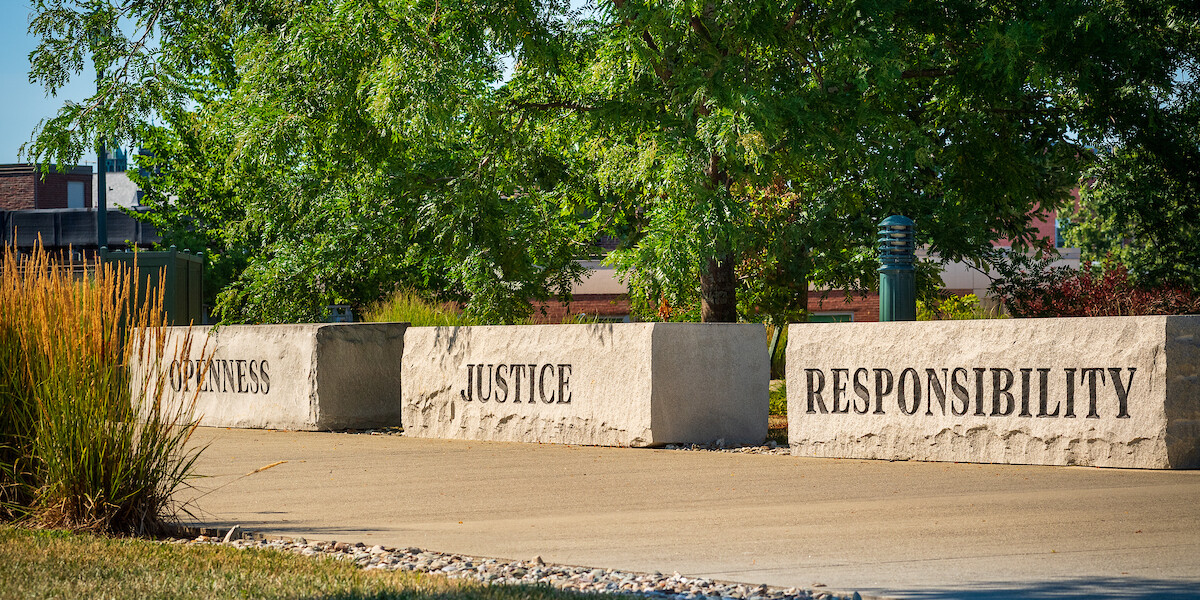As you start your first year of college, you might hear that inevitable question from just about everyone you know: “So, what’s your major?” You might feel a little anxious if you haven’t yet zeroed in on a program.
What’s more, you and your parents probably see higher education as an investment. So you might be concerned about spending money on courses that won’t count toward a major or don’t seem applicable to a career.
Pamela Gardner, director of the University of Vermont’s Career Center, has heard these concerns before. She and her staff work daily with students like you who are trying to make a connection between what they are studying in the classroom and how that might apply to a job after graduation.
First, it’s important to keep in mind that many employers value a well-rounded liberal arts education, and that’s what you’ll get at UVM. Although your parents might try to steer you toward a business degree, believing that will result in a job offer right out of college, you also need to know that if you choose to major in English, history or another liberal arts discipline, you can find a satisfying career, especially with focused internships and volunteer work during college. And it doesn’t hurt that UVM has a vast network of employers and alumni who recognize the value of a UVM degree.
No matter which major you choose, the UVM Career Center can help you figure out how to get the most out of your degree. You also might try taking a winter session career course offered through UVM Continuing and Distance Education. The courses cover majors from anthropology and computer science to areas of interest like public health, arts administration and the environment and help you explore how your academic interests might fit with an actual career direction and strategy.
“Frequently, students don’t quite understand the connection between what they’re studying and what they might want to do,” Gardner says. “The career courses allow them to understand how careers and majors connect and provide some structure to explore some of their own ideas about what they’d like to do.”
Before you select a major, you’ll have plenty of time to explore which topics interest you. Bachelor’s degrees require coursework in a whole host of academic areas, not just a specific major, Gardner explains.
“In the vast majority of majors, general education or ‘distribution’ requirements can be used to make progress toward a degree,” she says. “For most students, this is a good place to begin.”
Questions to Ask When Choosing a Major:
Gardner offers these five steps for narrowing down your interests and choosing a major:
1. Consider which subjects appeal to you. If you’re like most students, you probably are not completely undecided. You probably have an opinion about natural science or numbers or social science.“Take a look at the list of majors at UVM. Note which ones fit your interests; scratch the ones you know you could never major in,” Gardner suggest. “With the interesting majors, take a look at the course offerings. Which classes appeal to you?”
2. Now turn to the UVM Course Catalogue to check which school or college offers the courses that interest you. Each UVM school or college has a list of distribution requirements. Cross-reference your interest list with the appropriate distribution list.“These are the classes you should consider taking: They look interesting, help you progress toward a degree and give you more information about which major might be right for you,” she explains.
3. Talk to your advisor about these interests. Your advisor will examine your high school record, university requirements and your lists and help you adjust your schedule to promote your success.
4. Pay attention during that first semester. “Which areas pique your interests? What challenges you and makes you hunger for more?” Gardner asks students. “These are likely subjects for a major or minor. Maybe that’s all you need to decide.”More commonly, she explains, enrolling in Associate Professor J Dickinson’s “Choosing a Major” course or talking with a career counselor can help.“Being undecided for a semester or two will not delay graduation for students in most majors,” she notes. “Staying undecided or changing majors later in the game can be a problem.”
5. Ask for help. “Too many students think they should be able to do this alone,” Gardner says. “Your tuition and fees don’t just buy you classes, they buy you access to departments full of staff and faculty who can help you.”
Choosing a major is tricky, so ask for help.
Take advantage of UVM staff who can assist you in:
* Developing college-level study and time management skills.
* Exploring majors and career options.
* Identifying part-time or summer employment opportunities.
* Gaining experience (community service, leadership, internships, research and more) that helps build skills and clarify career goals.
“It’s up to students to access these resources, to work hard, and to excel,” Gardner says. “We know students can do it, and we want to help.”





